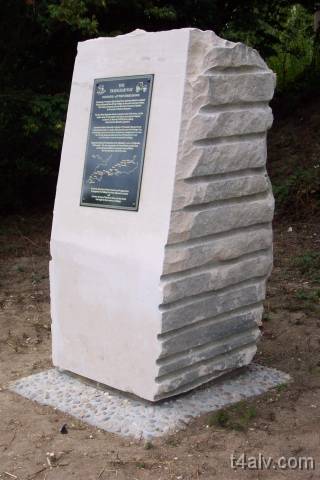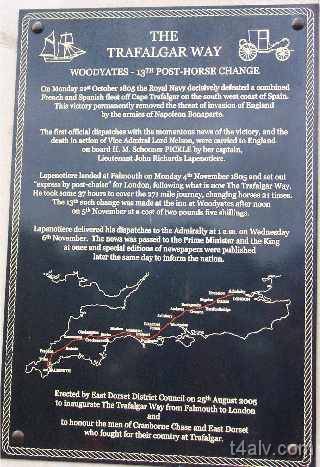Our home from 1988 to 2006

At West Woodyates, there are the remains of a large farm, operating in Roman times, and recent finds have included pottery, trinkets, coins and farm tools.
The area was quite extensively occupied in Roman times, and, with Bokerley Dyke standing as a formidable fortress to protect this part of Dorset, there was no appreciable Saxon settlement until after the 7th century.
A storm a few years ago at Woodyates was strong enough to demolish part of an old chalk wall, which marked the boundary of the property, shown on early maps as the "Woodyates Inn".
The parish records show that the landlord of the Inn was one Thomas Browning, the great grandfather of the poet Robert Browning.
According to various sources, the Inn was called the Shaftesbury Arms, presumably after the Earl of Shaftesbury, whose estates covered the area.
The building was badly damaged by fire and eventually demolished in 1967; the true value of the loss to history being realised, when a supporting beam was discovered, above the fireplace, scored with the date 1672.
This made the property, although demolished, worthy of an entry in the Royal Commission on Historical Monuments, Volume 5, which covers East Dorset.
What remains, as the last piece of physical evidence to support the Royal Commission's entry, is the chalk wall.
Built from layers of chalk, the wall would have originally been capped with thatch.
The tiles seen today were probably introduced in the nineteenth century.
A reference to Woodyates Inn, and its connection to what became known in history as the Monmouth Rebellion, can be found in Wigfield's "Monmouth Rebellion".
The Inn was also the site of another event, commemorated by the erection of a plaque in 2005, as part of the creation of The Trafalgar Way.
The words on the plaque describe the event:
THE TRAFALGAR WAY
WOODYATES - 13th POST-HORSE CHANGE
On Monday 21st October 1805 the Royal Navy decisively defeated a combined French and
 Spanish fleet off Cape Trafalgar on the south west coast of Spain. This victory
permanently removed the threat of invasion of England by the armies of Napoleon
Bonaparte.
Spanish fleet off Cape Trafalgar on the south west coast of Spain. This victory
permanently removed the threat of invasion of England by the armies of Napoleon
Bonaparte.
The official dispatches with the momentous news of the victory, and the death in action of
Vice Admiral Lord Nelson, were carried to England on board H. M. Schooner PICKLE by
her captain, Lieutenant John Richards Lapenotiere.
Lapenotiere landed at Falmouth on Monday 4th November 1805 and set out "express by
post-chaise" for London, following what is now the Trafalgar Way. He took some 37
hours to cover the 271 mile journey, changing horses 21 times.
The 13th such change was made at the inn at Woodyates
after noon on 5th November at a cost of two pounds five
shillings.
Lapenotiere delivered his dispatches to the Admiralty at 1a.m. on Wednesday 6th
November. The news was passed to the Prime Minister and the King at once and special
editions of newspapers were published later the same day to inform the nation.
On the 25th August 2005, close to the original site of The Woodyates Inn, a commemorative plaque was unveiled by The Chairman of East Dorset District Council. The dedication says:
Erected by East Dorset District Council on 25th August 2005 to inaugurate The Trafalgar Way from Falmouth to London and to honour the men of Cranborne Chase and East Dorset who fought for their country at Trafalgar.